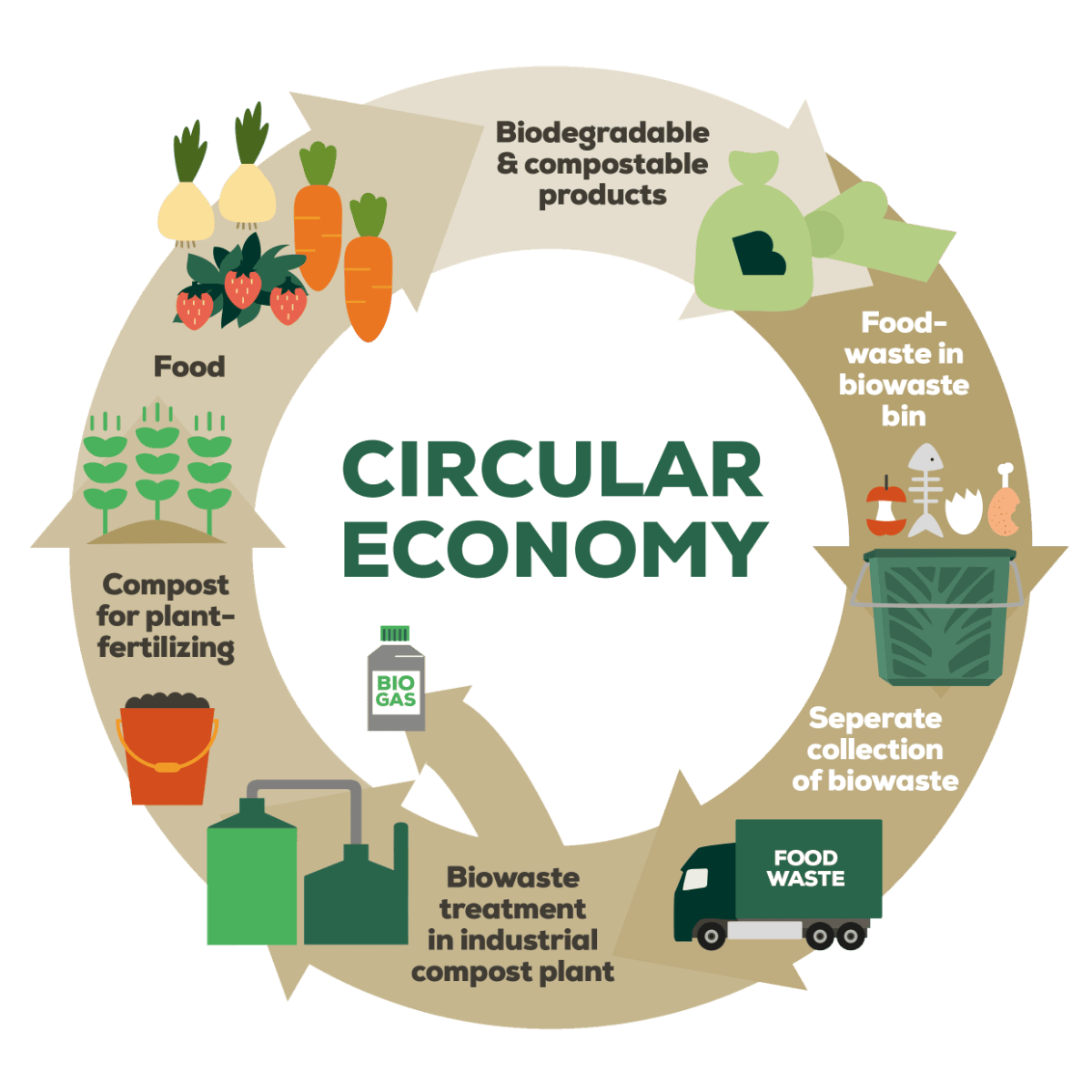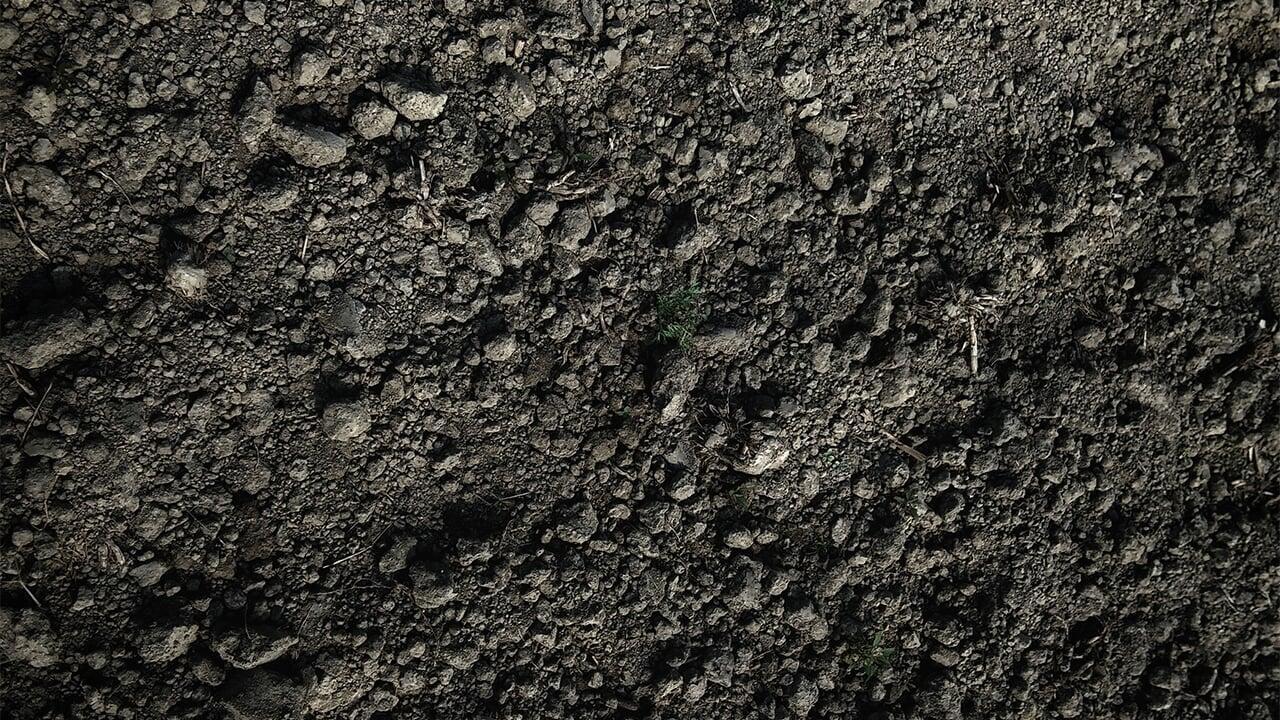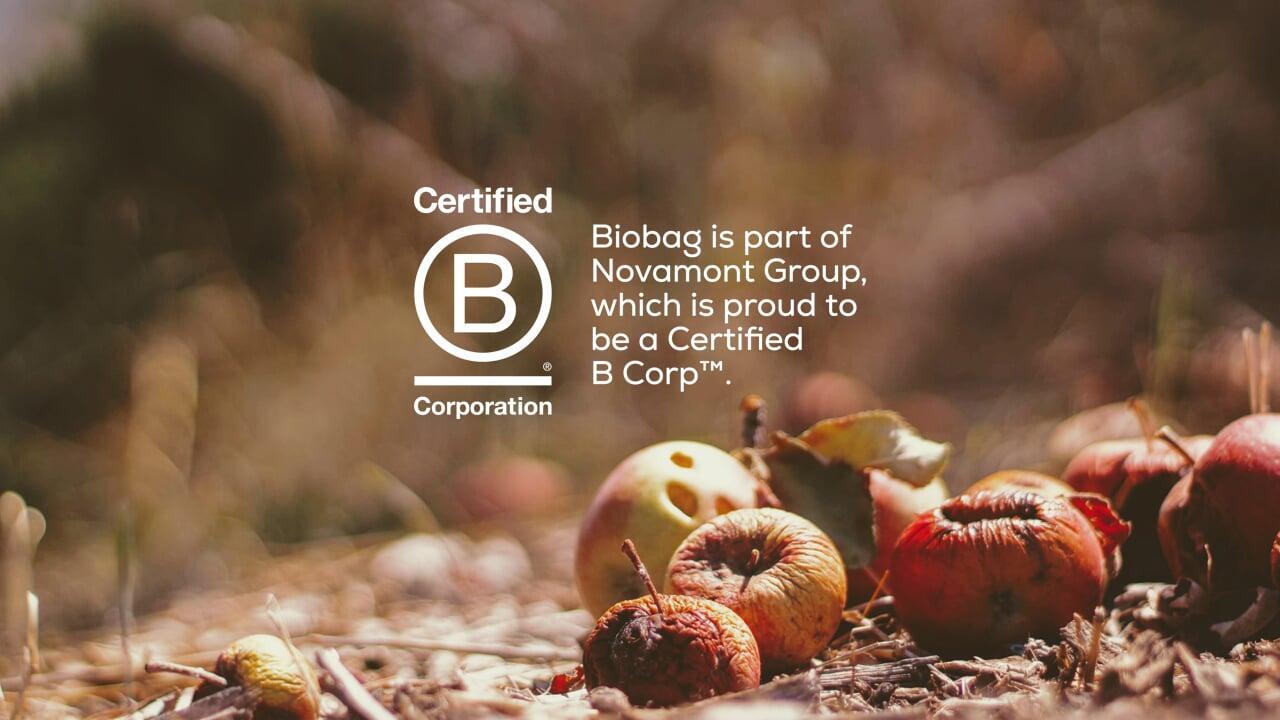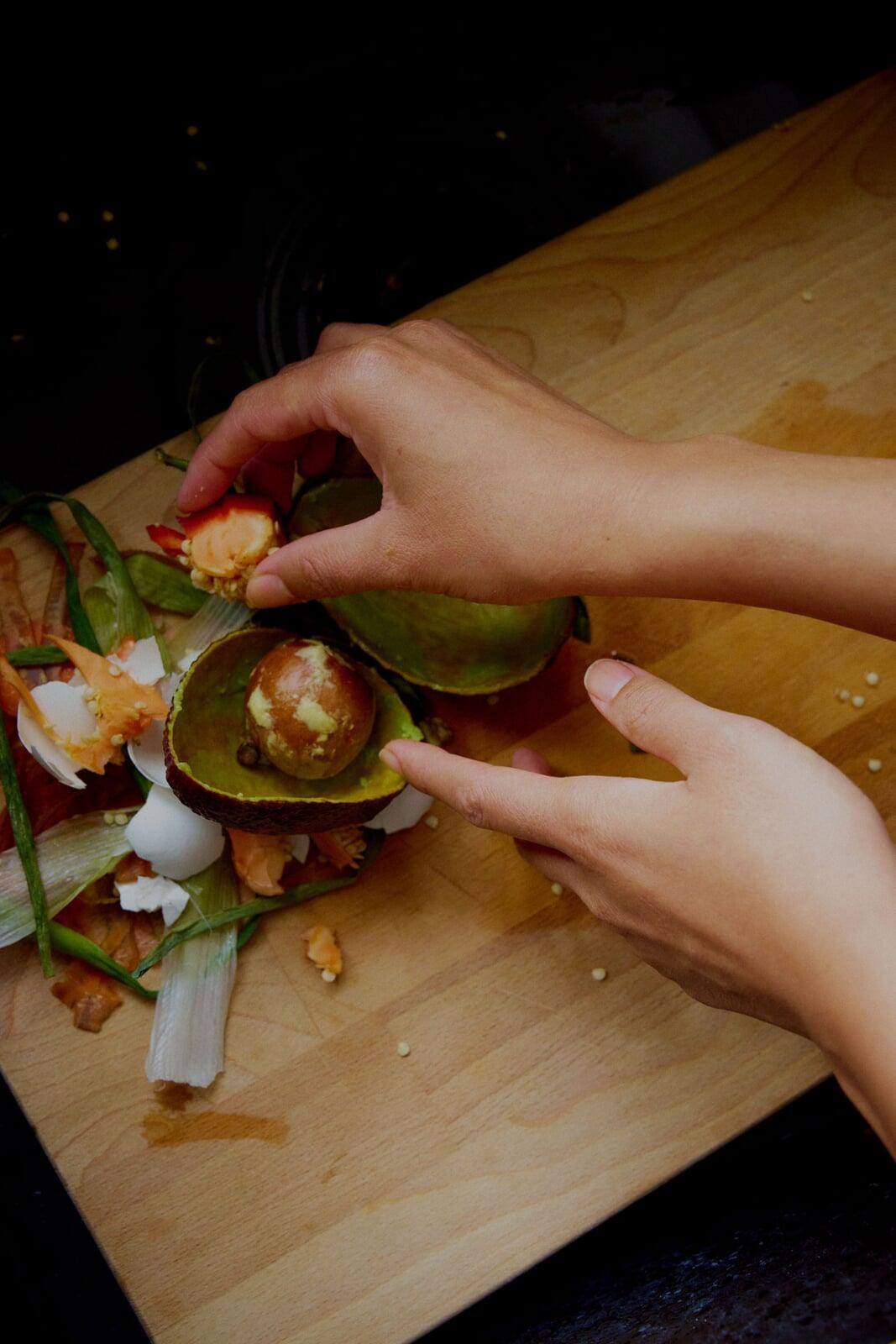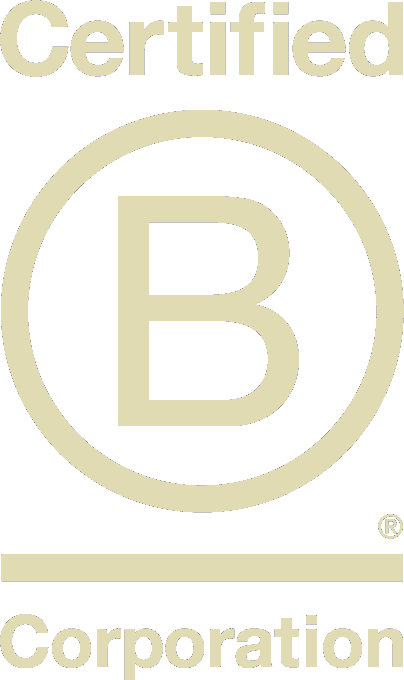An exciting European proposal on the Circular Economy Package in December 2015 paved the way for broader adoption of biodegradable materials across the EU. Dive into the circular economy action plan package to learn about the changes soon to be taking place in the EU and how they will benefit consumers and member countries alike.
What is a circular economy?
What is a circular economy?
A circular economy is a sustainable model that minimizes waste and maximizes resource use. Unlike the traditional linear economy of 'take, make, dispose,' it focuses on keeping products and materials in use and regenerating natural systems. Key principles include:
- Designing out waste: Creating products that can be easily disassembled and reused, reducing pollution from the start.
- Maintaining product use: Extending product lifespans through repair, refurbishment, and recycling.
- Regenerating natural systems: Supporting natural processes and using renewable resources.
EU circular economy targets
EU circular economy targets
The European Commission acknowledges the need for EU citizens to use natural resources more sustainably. Without change, global resources will be insufficient to meet future needs. A core principle of the Circular Economy is "closing the loop," particularly the carbon loop. This involves increasing recycling and reducing landfill waste. By 2030, the EU aims to limit landfill waste to 10%, recycle 75% of packaging waste, and 65% of municipal waste. Waste cannot be exported without consent, ensuring responsibility remains local.
A key strategy in achieving these targets is the replacement of conventional plastic bags with compostable and biodegradable bags. If sorted and collected separately, organic waste can be converted into biogas or nutritious compost to grow new crops and nurture the soil. However, using conventional plastic bags for food scraps contaminates compost with microplastic, no matter how carefully we handle it. That’s why switching to fully certified compostable bag can be the solution. This ensures that compost or biopukp can safely return to the soil, free from harmful microplastic.
More Inspiration
Sep 17 2025
Biobag is part of Novamont Group, which is proud to be a
Biobag is part of Novamont Group, which is proud to be a
Sep 17 2025
A side order of microplastics, anyone?
A side order of microplastics, anyone?
Sep 17 2025
Organic waste: an environmental threat or the best solution ever?
Organic waste: an environmental threat or the best solution ever?

